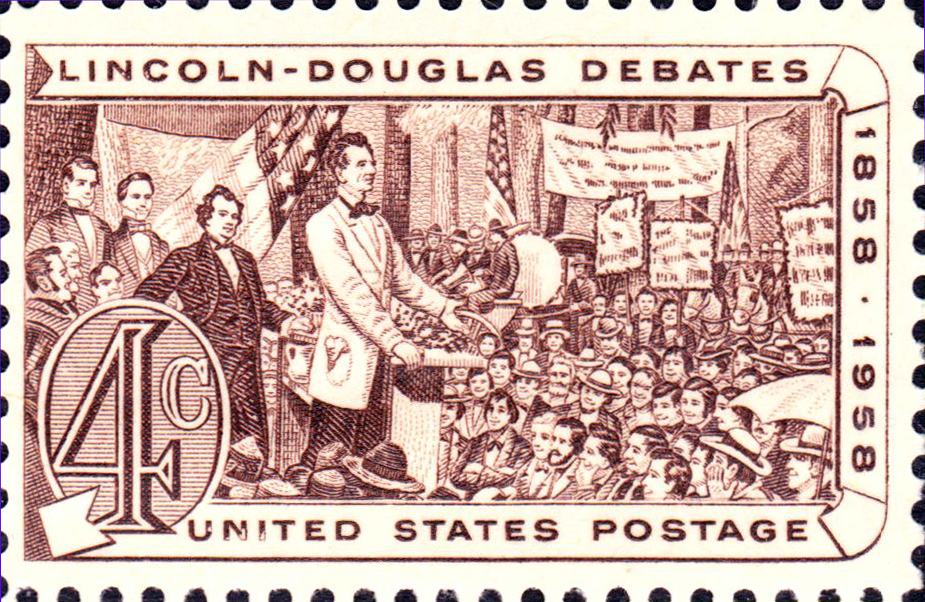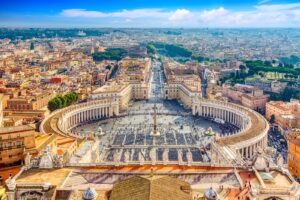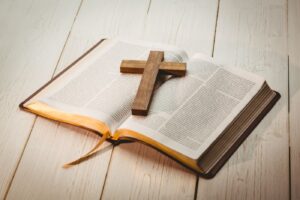I have it from no less an authority than Gerald McDermott, the author of five books on Jonathan Edwards, that Allen Guelzo’s 1989 book Edwards on the Will: A Century of American Theological Debate is “the best book ever written on the most important work of American philosophy in the eighteenth century.” The reference is to Jonathan Edwards’s 1754 work Freedom of the Will, which McDermott calls “best thing by a philosophical theologian” on that subject.
This is one of those matters where the argument from authority will just have to do for me, since I have so far lacked the willpower to read either Edwards’s Freedom of the Will or Guelzo’s treatment thereof. But my friend Gerry gave me a useful reminder that we should recall where Allen Guelzo began his career—in intellectual history, specifically American evangelical theology. Edwards on the Will was Guelzo’s revised doctoral dissertation at Penn, and if a scholar like McDermott can praise it so highly, he was off to a great start.
Not for nothing was theology rightly called the queen of the sciences in previous ages. One could be said to ascend to it from all the other liberal arts, the arts that liberate our minds to contemplate the highest things. One could even be said to ascend to it from philosophy. As Leo Strauss wrote, “Philosophy has to grant that revelation is possible. But to grant that revelation is possible means to grant that philosophy is perhaps not the one thing needful.”
It was thus a boon to us political theorists when Allen Guelzo turned his attention from the history of American theology to the statesmanship of Abraham Lincoln. For he brought a rare facility with ideas to his new subject. Indeed, in the introduction to his first Lincoln book, Abraham Lincoln: Redeemer President (1999), Guelzo declared his intention to “do something with Lincoln which virtually no modern Lincoln biographer has managed to do, which is to read Lincoln seriously as a man of ideas.” Similarly, in his 2009 book Lincoln, in the Oxford Very Short Introductions series, Guelzo calls his work “a biography of his ideas.” Even his 2004 book on the Emancipation Proclamation is a work of intellectual history, exploring not just “the complexities of Lincoln’s mental habits” but the sense in which the Emancipator represented an Enlightenment-inflected “politics of prudence” in which the workaday tools of lawful authority and military power could be turned to a statesman’s achievement of high justice.
Start your day with Public Discourse
Sign up and get our daily essays sent straight to your inbox.Guelzo’s latest, Redeeming the Great Emancipator, is a brief and telling rebuttal to contemporary cynics, reductionists, reparations ideologues, and neo-Confederates. Sure in his footing and confident in his mastery of the sources, Guelzo rescues Lincoln’s reputation—yet again—without applying any whitewash to it. It is necessary, in the course of this rescue operation, that Guelzo remind us that “We have long since jettisoned natural law” as the “nonsense upon stilts” that Jeremy Bentham called it. But this act of jettisoning does not set the natural law adrift; rather it sets us adrift, alongside Stephen A. Douglas, with only “will and power as our Pole stars.”
Lincoln, of course, did not believe that “democracy is morally autonomous.” While God was “a mystery to Lincoln,” “he certainly believed in the existence of natural law and natural rights.” In fact, they formed the ground of his determined resistance to slavery’s expansion and his later determination to abolish it. Lincoln “spoke of his own lack of religion with regret rather than boasting,” Guelzo informs us. He also shows us how Lincoln’s Calvinist upbringing led him to profound meditations on God’s Providence during the course of the Civil War, culminating in a Second Inaugural Address that was “almost a theological interpretation of the war.” I would strike only the word “almost” from that observation.
Educated as I was in political theory, my introduction to the Lincoln-Douglas debates was in reading, as an undergraduate, Harry Jaffa’s essay “Expediency and Morality in the Lincoln-Douglas Debates,” and then, as a graduate student, Jaffa’s Crisis of the House Divided. As fine and perceptive—indeed philosophical—as Jaffa’s treatment is, it has the effect of giving readers, especially ones as young and impressionable as I, a portrait of Lincoln that is perhaps too hagiographical. Lincoln emerges in Jaffa’s account (both here and in A New Birth of Freedom) almost as a philosopher-king: a razor-sharp logician, a rhetorical master who never put a foot wrong, a statesman the fabric of whose career from the Lyceum Address to his presidency is somehow seamless and perfect in its faultless devotion to principle. Jaffa supplies enough historical context for readers to follow what is happening, but the subtitle of Crisis is an accurate one: An Interpretation of the Lincoln-Douglas Debates.
One turns then to Guelzo’s 2008 book Lincoln and Douglas: The Debates That Defined America and finds, well, a historian’s work, naturally enough, not a political theorist’s. In his introduction he gently faults Jaffa and others for succumbing to “the temptation to focus on the Lincoln-Douglas debates while allowing the Lincoln-Douglas campaigns to fall off the table.” An undue focus on the seven three-hour joint appearances, which were spaced out over two months of a four-month election campaign, is like presenting “Shakespeare without a stage.” This defect Guelzo remedies marvelously, in a book that is absolutely required reading for anyone teaching the debates. It is hard to imagine that there is a single day of the campaign about which he has nothing to say, and if there is, it is because nothing happened. The story is granular in detail, dramatic in its momentum, and exciting even though we know the outcome.
We see Lincoln taking heat from his friends for the “house divided” rhetoric, paying a price for not heeding their counsel, following Douglas around trying to bait or badger him into sharing a debate stage, cooking up the Freeport Questions (not without considerable help), expressing a soaring faith in equality at one moment, and stooping to racial pandering at another. This is a human Lincoln, a stumbler and a striver. And we see Douglas, the showboat orator, the bulldog debater, the racial demagogue, the slippery character seeking to wriggle free of Lincoln’s grasp, and finally the exhausted boozer losing his voice. But, even when wounded, Douglas is a dangerous animal. In his own way, he commands our respect for his raw talent and his gambler’s nerve.
Seeing these few months of political activity so vividly depicted gives us even more appreciation of the judgment Guelzo shares with Jaffa, that “what Lincoln defended in the debates was the possibility that there could be a moral core to a democracy.” The alternative presented by Douglas’s “don’t care” policy of popular sovereignty was that democracy is a more or less arbitrary choice of a majority-rule procedure for settling whose interests are massaged and whose ox is gored. Lincoln was right, though it must have rocked the majoritarian Douglas back on his heels, when he said in the final debate at Alton that “the real issue” was “the eternal struggle between . . . right and wrong,” presented in political terms as the starkest of choices: “The one is the common right of humanity and the other the divine right of kings.” Guelzo correctly calls this “the rhetorical high point of the debates.” What an unexpected thrust it must have been to say that so obviously democratic a procedure as territorial popular sovereignty over slavery was actually just like the divine right of kings. But a deadly thrust it was: like a king living by the fruits of others’ labor, one race deciding by majority rule to enslave another is operating on “the same tyrannical principle.”
Is Lincoln saying that the divine right of kings is always and everywhere tyrannical? Is this so, even when the claim is not fraudulent but genuine, when God indeed has anointed one man king over others? Lincoln knew his Bible well enough to recall that in the first book of Samuel, chapter ten, the prophet tells the people of Israel: “And ye have this day rejected your God, who himself saved you out of all your adversities and your tribulations; and ye have said unto him, Nay, but set a king over us” (KJV 1 Samuel 10:19). And so they get one, good and hard. For the people of Israel, having a king set over them is a fitting punishment for their failings. Hence, even for one who believes that not every claim of a king to rule by divine right is a fraudulent claim, there is reason to recoil from such arbitrary rule of one man over his fellows. How much more, then, is it repugnant for one race to have arbitrary rule over another.
Yet one of Guelzo’s key insights into Lincoln’s thought is his acute observation that Lincoln had “almost no concern with slavery as a matter of race.” Guelzo goes so far as to say that “race was for Lincoln a fundamentally irrational consideration,” though he could not fail to take into account how important it was for others. Lincoln was a liberal in the best sense of the word, a partisan of every man’s liberty, his right to rise as high as his efforts would take him. This meant also that no man had a right to “rig the system” at the expense of others’ right to rise. And so, in a passage that struck me as though Guelzo were gazing into a crystal ball in 2009 and seeing the politics of 2016, he wrote in his Very Short Introduction to Lincoln:
What Lincoln thought—as did Cobden, Bright, Guizot, Tocqueville, and the other liberal lights of the nineteenth century—would pose the greatest danger to democracy was not an insurrection of discontented laborers but the maneuverings of a pig-eyed aristocracy to strike up a dark alliance with the working classes, whispering that economic mobility was a chimera and that what the workers needed was subsidy and protection from mobility.
There are numerous ways in which we might say that Stephen Douglas has had the last laugh. His account of the American founding prevails in American history departments, not Lincoln’s. His account of judicial supremacy prevails in American law schools, not Lincoln’s challenge to it. His account of a “non-foundationalist” basis of democracy is fashionable among political theorists, not Lincoln’s allegiance to foundational propositions. Seeing in our contemporary politics the revival of Douglas Democracy in all its anxieties about freedom—and seeing it make such headway in Lincoln’s political party—is disheartening in the extreme. The imperative of learning from Lincoln has never been stronger.
Guelzo’s Lincoln is not a man whose every word and deed at every moment is awe-inspiring or admirable. One puzzle for me is how a man who seemed all his life in thrall to a Calvinist fatalism holding every event and human action to be foreordained could simultaneously believe so strongly in human freedom and the possibilities of a free society, and could be so supple and adaptive in his own decision-making. This is a complicated fellow. But who is so simple as not to have these puzzles in his own character?
For all his flaws and oddities, his errors, missteps, and blind spots, Lincoln emerges in Guelzo’s account as even more admirable for our knowing so much more about him. Here the biographer’s eye for detail, the political historian’s eye for context, and the intellectual historian’s grasp of ideas have come together to sculpt a portrait in the round, and the result draws our gaze upward like the Lincoln Memorial. For the gift of these books, Guelzo stands as the beau ideal of a Lincoln scholar.












